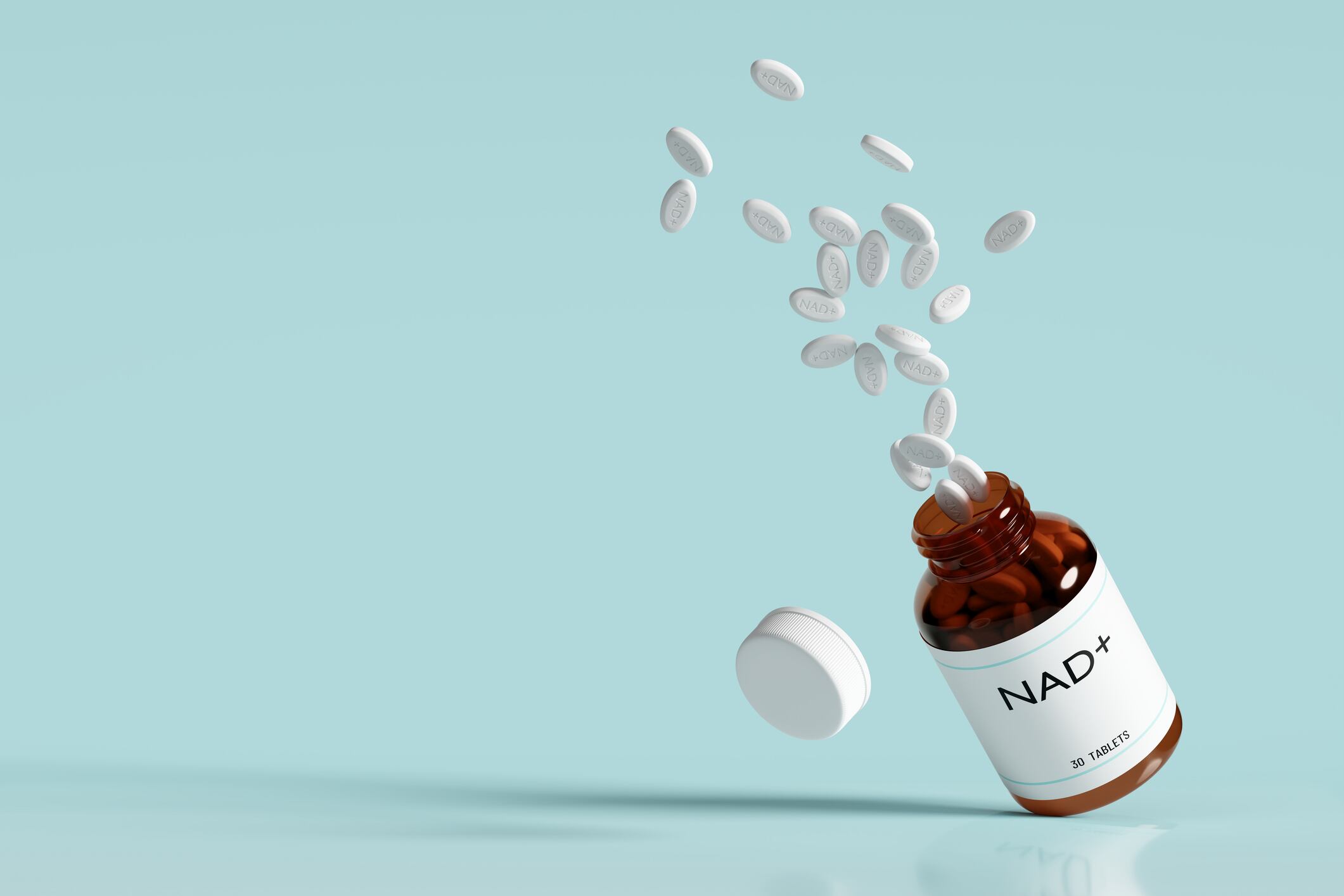Science
NAD+ Market Faces Reality Check Amid Consumer Shift

The NAD+ supplement market is undergoing a significant transformation, revealing a disconnect between growing scientific interest and declining consumer purchases. Recent data indicates an alarming 48% drop in searches for “NAD Supplement” from November 2024 to August 2025, highlighting a shift in consumer behavior as shoppers become more discerning about their wellness investments. This trend is underscored by an 80% decline in Amazon search traffic for NAD+ products, suggesting a reevaluation of the supplement’s perceived value in the health and wellness sector.
Shifting Trends in Consumer Interest
While purchasing intent wanes, general curiosity about NAD+ has surged. Monthly searches for the term “NAD” have increased from 55,408 in January 2024 to a peak of 129,328 by July 2025, a remarkable 133% rise. Even after a seasonal dip to 108,965 in September 2025, interest remains substantial, indicating that the biological implications of NAD+ continue to intrigue the public.
In stark contrast, purchase-related searches for “NAD Supplement” plummeted from 202,838 to 105,527 during the same period. Amazon data further supports this trend, revealing a dramatic decrease from nearly 900,000 searches in December 2024 to just 150,000 by June 2025. This stark disparity reflects a broader consumer sentiment where scientific curiosity does not translate into purchasing behavior.
Consumer Sentiment: A Three-Phase Evolution
The narrative surrounding NAD+ has evolved significantly over recent years. Initially, from 2021 to 2023, early adopters shared optimistic experiences but maintained a healthy skepticism about the supplement’s efficacy. This phase was characterized by inquiries into absorption methods and potential health risks.
In 2024, interest peaked as NAD+ entered mainstream wellness culture, leading to polarized opinions. Advocates touted its transformative benefits, while skeptics dismissed it as overpriced “snake oil.” The debate intensified, with consumers questioning the credibility of influencer-promoted claims.
Today, in 2025, the conversation reflects a matured perspective. Users now engage in informed discussions about optimized protocols, emphasizing the importance of individualized responses to NAD+. A consensus acknowledges that while NAD+ can offer benefits, its effectiveness may vary significantly based on personal health profiles and administration methods.
The community has become increasingly discerning, recognizing that successful supplementation often requires injections or intravenous methods rather than oral options, which are perceived as less effective. The sentiment has shifted to a more grounded view, with users expressing that NAD+ may not be a miracle solution but rather a nuanced addition to their health regimen.
Market Implications and Future Directions
The disconnect between growing scientific intrigue and declining purchases poses significant challenges for the NAD+ market. Consumers are now conducting thorough research before making purchases, often concluding that the high costs of NAD+ supplements do not align with their perceived benefits. This shift underscores a broader consumer trend towards cost-effective alternatives, such as NMN and NR, which are gaining popularity as precursors to NAD+.
As the supplement landscape continues to evolve, companies must adapt to the new realities. The emphasis on anti-aging promises is waning, and manufacturers are urged to enhance their price-value propositions. This includes focusing on evidence-based benefits rather than broad, unsubstantiated claims.
For consumers, the evolving market landscape empowers them to make informed decisions. Access to balanced information about the benefits and limitations of NAD+ supplements, along with a variety of administration methods and price points, fosters a more educated consumer base.
Overall, the trajectory of the NAD+ market offers critical lessons. The cycle of initial excitement followed by backlash and market correction is likely to repeat unless companies prioritize clinical evidence over marketing hype. As the industry adjusts to these changes, the future will favor those who can substantiate their claims with robust scientific data.
In conclusion, the NAD+ market is transitioning from an era of explosive growth to one of cautious reassessment. While scientific interest continues to flourish, consumers are no longer willing to invest in high-priced supplements without proven benefits. The market is settling into a more realistic role within the wellness landscape, emphasizing the importance of evidence-based practices and clear value propositions.
-

 Entertainment2 months ago
Entertainment2 months agoAnn Ming Reflects on ITV’s ‘I Fought the Law’ Drama
-

 Entertainment3 months ago
Entertainment3 months agoKate Garraway Sells £2 Million Home Amid Financial Struggles
-

 Health2 months ago
Health2 months agoKatie Price Faces New Health Concerns After Cancer Symptoms Resurface
-

 Entertainment2 months ago
Entertainment2 months agoCoronation Street’s Carl Webster Faces Trouble with New Affairs
-

 Entertainment2 months ago
Entertainment2 months agoWhere is Tinder Swindler Simon Leviev? Latest Updates Revealed
-

 Entertainment3 months ago
Entertainment3 months agoKim Cattrall Posts Cryptic Message After HBO’s Sequel Cancellation
-

 Entertainment2 months ago
Entertainment2 months agoOlivia Attwood Opens Up About Fallout with Former Best Friend
-

 Entertainment2 months ago
Entertainment2 months agoMasterChef Faces Turmoil as Tom Kerridge Withdraws from Hosting Role
-

 Entertainment3 months ago
Entertainment3 months agoSpeculation Surrounds Home and Away as Cast Departures Mount
-

 World2 months ago
World2 months agoCole Palmer’s Mysterious Message to Kobbie Mainoo Sparks Speculation
-

 Entertainment3 months ago
Entertainment3 months agoMarkiplier Addresses AI Controversy During Livestream Response
-

 Entertainment2 months ago
Entertainment2 months agoITV’s I Fought the Law: Unraveling the True Story Behind the Drama




















